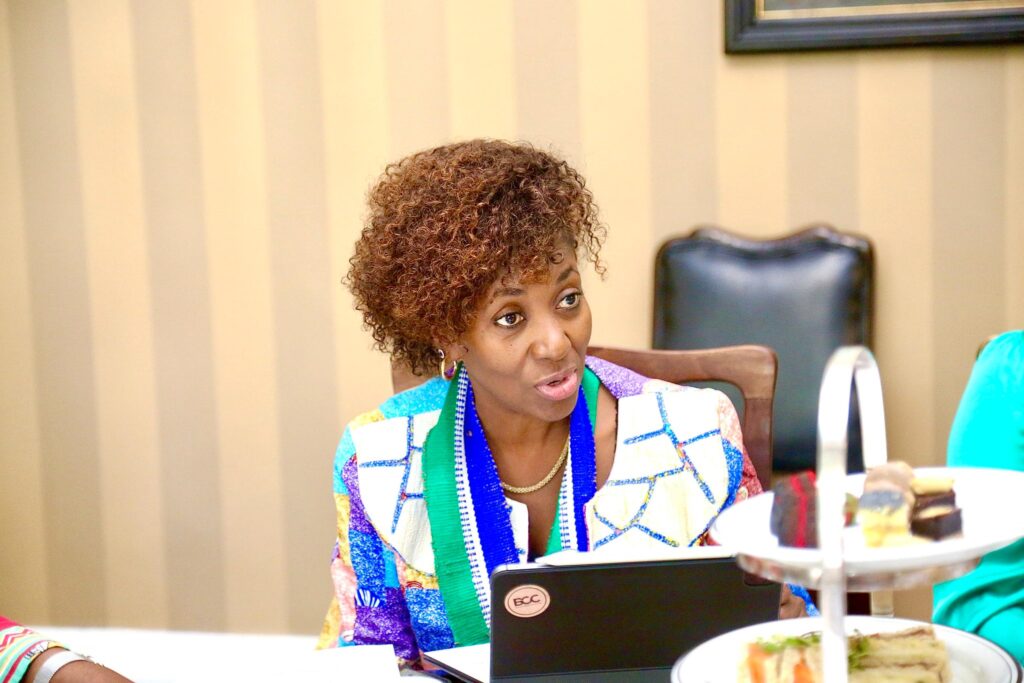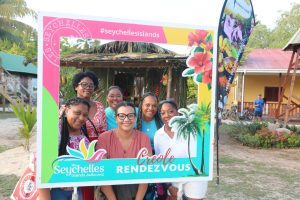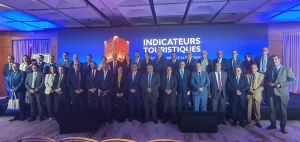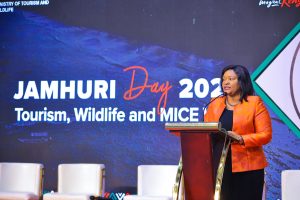Picture: Nabeela Tunis, Sierra Leone’s Minister of Tourism and Cultural Affairs
The Government of Sierra Leone, through the Ministry of Tourism and Cultural Affairs (MTCA), in collaboration with UN Tourism is set to host the inaugural Women in Tourism Regional Congress from 29th to 31st October 2024 at the Freetown International Conference Centre. The event, themed “Beyond Empowerment to Education, Innovation, and Finance Access,” aims to bring together women leaders, entrepreneurs, and stakeholders in the tourism sector to address the systemic barriers that hinder women’s progress and offer actionable insights to drive change.
Investing in women and closing gender gaps, especially in sectors like tourism, can significantly enhance economic growth. Studies have shown that such investments could increase GDP per capita by 20% and create over 300 million jobs by 2035. Tourism, a key sector for employment globally, is notably dominated by women, who make up 54% of the global tourism workforce and 70% in Africa. Despite this majority, women remain concentrated in low-skilled, low-paid, and often informal employment.
To address these challenges, the Congress will focus on equipping women in tourism with the skills, knowledge, and financial support they need to move beyond empowerment to leadership and influence. The Congress is in line with the UN Sustainable Development Goal (SDG) 5, which seeks to achieve gender equality and empower all women and girls by 2030, and the African Union’s Agenda 2063, which emphasizes the need for inclusive growth and gender equality.
Although women make up the majority of the tourism workforce, they often face numerous barriers, including limited access to finance, inadequate education and skills, and underrepresentation in leadership positions. In 2024, women represented only 30% of tourism ministers in Africa, a stark contrast to the 70% of male ministers, highlighting the ongoing leadership gap. Moreover, World Bank studies in Sierra Leone reveal that women in tourism face challenges common across Africa, such as complex legal frameworks, limited access to markets, and poor infrastructure.
The Congress will center on four key pillars aimed at providing women with the tools to overcome systemic barriers and accelerate their progress in the tourism sector:
1. Mentorship, Education, and Training:
– Provide specialized training programs and educational resources tailored to women in tourism.
– Conduct capacity-building sessions on critical topics like entrepreneurship, management, and leadership.
– Facilitate comprehensive mentorship programs to connect emerging women leaders with experienced professionals.
2. Technology and Innovation:
– Encourage the adoption of digital tools and innovative technologies within women-led tourism businesses.
– Offer training on emerging technologies, digital marketing, and data analytics to empower women in business strategy development.
– Foster a culture of innovation by supporting technology-driven initiatives and start-ups in tourism.
3. Access to Finance:
– Provide financial literacy training, focusing on investment strategies and understanding funding opportunities.
– Develop partnerships with financial institutions to create tailored funding solutions for women-led tourism enterprises.
– Promote sustainable financial practices to ensure long-term success for women entrepreneurs.
4. Knowledge Sharing:
– Highlight gender disparities and structural barriers that limit women’s participation in tourism.
– Share best practices and successful initiatives that have supported women in gaining access to leadership roles and securing financing.
– Facilitate capacity-building and cross-cutting skill development to support women in tourism.
Participants at the Congress will leave with actionable insights and strategies they can implement within their organizations and communities. By focusing on education, technology, finance, and knowledge sharing, the Congress seeks to empower women in tourism to break free from traditional limitations and to step into leadership roles with confidence.
The Women in Tourism Regional Congress is set to bring together key players from across the tourism industry and other sectors committed to women’s empowerment. These include:
– Tourism stakeholders, including ministries and national tourism administrations.
– Private sector representatives with an interest in promoting women’s leadership.
– Civil society organizations and NGOs that champion gender equality.
– Academic institutions specializing in gender studies and inclusive tourism.
– Influential women leaders and policy makers advocating for gender equality.
To foster a dynamic and engaging environment, the Congress will include a variety of sessions designed to enhance learning, collaboration, and networking:
– Keynote addresses to set the tone for discussions.
– Panel discussions to share best practices and strategies.
– Workshops on critical topics like leadership, technology, and finance.
– Exhibitions where women entrepreneurs can showcase their products and innovations.
– Master classes and mentorship sessions to build leadership skills.
– A closed session for the Women in Tourism Leadership Africa Committee (WITLAC) to strategize future actions.
By facilitating these multi-faceted sessions, the Congress aims to create a robust network of women in tourism, enabling participants to collaborate on innovative solutions to the sector’s most pressing challenges.
The Women in Tourism Regional Congress will serve as a pivotal moment for advancing gender equality in Africa’s tourism sector. By moving beyond traditional empowerment and focusing on education, technology, and finance, this event will provide women with the tools, support, and opportunities they need to succeed. As tourism continues to play a critical role in the global economy, ensuring that women have equitable access to leadership roles and decision-making positions will be key to the sector’s sustainable growth.







